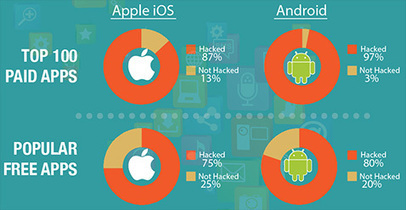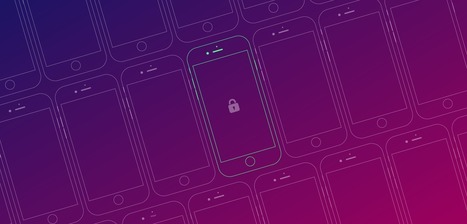Wie aus einem geleakten Dokument hervor geht, zeichnet Apple Metadaten zu iMessages-Konversationen auf und kann diese auch auf richterliche Anordnung der Polizei aushändigen. Die Konversation selbst bleibt verschlüsselt, doch speichert Apple für 30 Tage auf seinen Servern Daten über die Kontaktaufnahme. In dem Moment, in dem man in die Nachrichten-App eine Nummer oder einen Namen eintippt, richtet das iPhone eine Anfrage an den Server bei Apple, ob der Kontakt mit iMessages verknüpft ist oder eine unverschlüsselte SMS versandt werden soll. Diese Daten bleiben dann einen Monat bestehen, es geht aber aus ihnen nicht hervor, ob tatsächlich eine Konversation stattgefunden hat oder nicht.
Die ursprüngliche Meldung ist gestern auf " The Intercept " erschienen, die Autoren bekamen jede Menge Unterlagen zugespielt, die wohl einst im internen Umlauf beim Support-Team der Abteilung für elektronische Überwaschung der Staatsanwaltschaft in Florida war. Darunter fand sich ein Dokument mit dem Namen "iMessage FAQ für Strafverfolgungsbehörden". Bis zu der letzten Frage liest sich das Dokument wie eine Einführung zur iMessage-Nutzung, erst als Antwort auf die letzte Frage "Was bekomme ich von Apple, wenn ich eine Gerichtsverfügung für ein iMessage-Konto habe?" eine detaillierte Liste der Meta-Daten. Darunter sind die Kontaktdaten wie die Telefonnummer des Gesprächspartners in iMessage, das Datum und die Uhrzeit, wann das iPhone versucht hat, den Kontakt per iMessage zu erreichen, die IP-Adresse des nächsten WLANs, über die die Verbindung zum Apple-Server stattgefunden hat. Die Apple-Sprecherin hat gegenüber "The Intercept" bestätigt, dass das geleakte Dokument den tatsächlichen Stand der Dinge beschreibt, allerdings speichert Apple nach deren Angaben solche Logs nur einen Monat lang, danach werden sie gelöscht.
Learn more / En savoir plus / Mehr erfahren:
http://www.scoop.it/t/apple-mac-ios4-ipad-iphone-and-in-security/?tag=Privacy
http://www.scoop.it/t/apple-mac-ios4-ipad-iphone-and-in-security/



 Your new post is loading...
Your new post is loading...












Learn more / En savoir plus / Mehr erfahren:
http://www.scoop.it/t/apple-mac-ios4-ipad-iphone-and-in-security/?tag=Privacy
http://www.scoop.it/t/apple-mac-ios4-ipad-iphone-and-in-security/